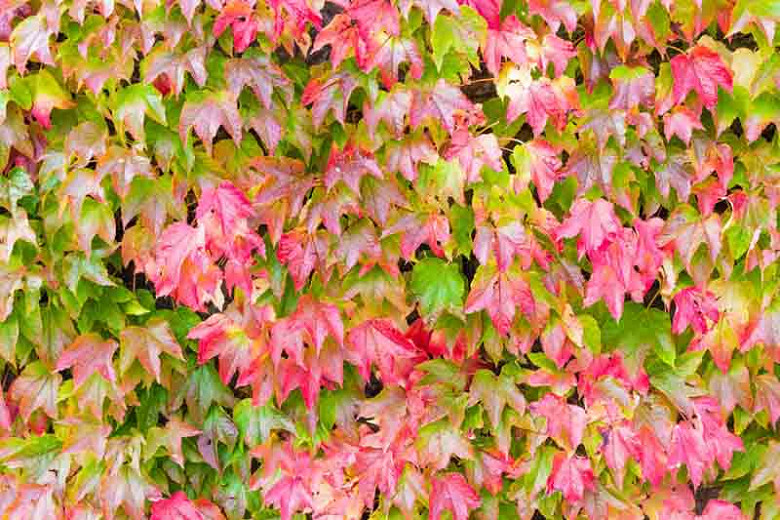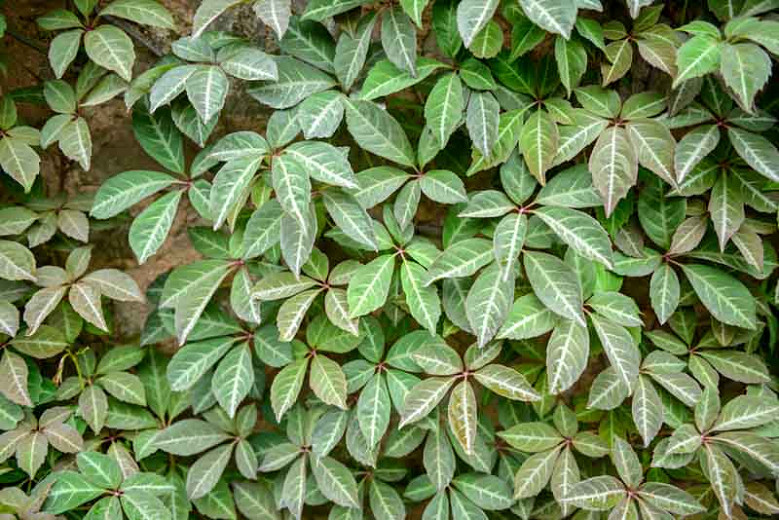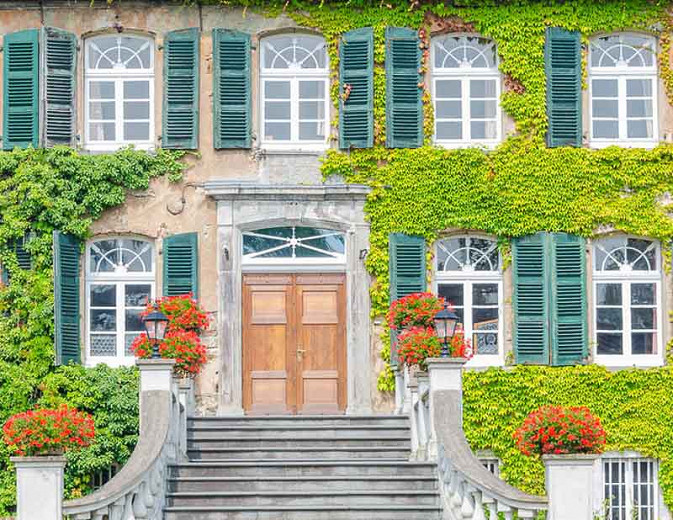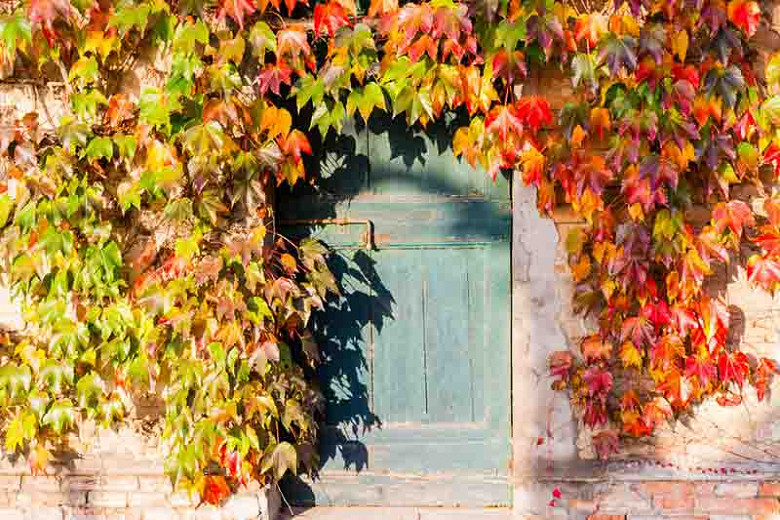Parthenocissus tricuspidata (Boston Ivy)
Parthenocissus tricuspidata (Boston Ivy) is a very vigorous, fast-growing, deciduous climber boasting mostly ovate or three-lobed, rich lustrous deep green leaves, 8 in. wide (20 cm), turning brilliant shades of burgundy, orange and wine-red in the fall.
Parthenocissus tricuspidata (Boston Ivy) is a very vigorous, fast-growing, deciduous climber boasting mostly ovate or three-lobed, rich lustrous deep green leaves, 8 in. wide (20 cm), turning brilliant shades of burgundy, orange and wine-red in the fall. Usually hidden by the foliage, greenish-white flowers appear in the upper leaf axils in late spring to early summer. They give way to round, fleshy, blue-black berries, visible only after the leaves have fallen and if the birds have not devoured them. Although native to Asia, this ivy has been widely planted in the U.S. It covers the walls of many college and university buildings, giving rise in the Northeast to the name Ivy League. Semi-evergreen in mild winter areas.
Requirements
| Hardiness | 4 – 8 |
|---|---|
| Heat Zones | 1 – 8 |
| Climate Zones | 1, 1A, 1B, 2, 2A, 2B, 3, 3A, 3B, 4, 5, 6, 7, 8, 9, 10, 11, 12, 13, 14, 15, 16, 17, 18, 19, 20, 21, 22, 23, 24 |
| Plant Type | Climbers |
| Plant Family | Parthenocissus |
| Exposure | Full Sun, Partial Sun, Shade |
| Season of Interest | Spring (Mid,Late)Summer (Early,Mid,Late)Fall |
| Height | 30' – 50' (9m – 15m) |
| Spread | 5' – 10' (150cm – 3m) |
| Water Needs | Average |
| Maintenance | Average |
| Soil Type | Chalk, Clay, Loam, Sand |
| Soil pH | Acid, Alkaline, Neutral |
| Soil Drainage | Moist but Well-Drained, Well-Drained |
| Characteristics | Showy, Semi-Evergreen, Fruit & Berries |
| Tolerance | Clay Soil, Deer, Drought, Dry Soil, Rocky Soil |
| Attracts | Birds |
| Garden Uses | Arbors, Pergolas, Trellises, Banks and Slopes, Ground Covers, Wall-Side Borders, Walls and Fences |




